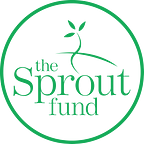Case Studies of Digital Badges in Action
For years, The Sprout Fund has been working to create a favorable environment for digital badges. Through events like the 2013 National Summit to Reconnect Learning and the 2015 Learning Pathways Summit in Pittsburgh, Sprout convened stakeholders to explore the prospect of using digital badges as a way to recognize student learning and achievement. In 2015, Sprout also led a community-wide process to develop shared learning competencies and engaged regional employers in a discussion about connecting badges to workforce development goals.
For three summers, from 2014–2016, Sprout worked with a variety of partners to begin using digital badges to capture summer learning. These efforts were initially branded under the name Pittsburgh City of Learning and eventually became known as LRNG Pittsburgh. Locally, we built a community of practice that included three major partners — our public school system, our public library system, and our region’s summer youth employment program — and more than 40 other out-of-school-time programs. Together, this peer community experimented with designing and offering digital badges through their summer activities.
In 2016, Sprout provided support to six teams to create cross-disciplinary, badge-enabled learning pathways during the 2016–2017 academic year. Each team is using Connected Learning principles to help youth engage deeply at several learning spaces across the Pittsburgh region. These six pathways represent vastly different interest areas: robotics, architecture, conservation, media literacy, youth voice, and college readiness.
As of 2017, the technology underpinning digital badges is still in development; however, the design principles and shared practices that have emerged for digital badging are increasingly sophisticated. Sprout has helped organizations in Pittsburgh and across the country design their own digital badges, and Sprout’s badge development process has been tested and refined by a national community of practitioners.
As a result of our efforts in Pittsburgh and beyond, there is now broader awareness of digital badges as a way to recognize and reward learning. Educators working in schools, after-school programs, and informal learning spaces are increasingly considering digital badges as a way to document and reward students for learning anytime, anywhere. The Sprout Fund is pleased to have played a role in the early stages of this work.
Four brief case studies on badging
Badges in Out-of-School Time: The Labs @ CLP have issued digital badges in Pittsburgh since Pittsburgh City of Learning 2014. The Labs host teen programming at several Carnegie Library of Pittsburgh (CLP) branches; featured connected learning opportunities including audio recording, video game design, digital camera skills, zinemaking, and sewing. Over the years, CLP has used its badging system to help formalize the learning pathways that students can pursue at each of their Labs locations. By developing badges for all of their programs, CLP staff are able to transfer relative areas of strength at some branches — like audio recording or video game design — to programming at all Labs sites. Notably, CLP hasn’t used a digital badging platform to manage their badge system: library branches have a binder on hand that teens can peruse to learn about the different learning activities they can pursue in mentor-led and self-directed sessions at The Labs. CLP staff use a series of Google Docs to track which students have completed which activities, and students who earn a badge receive a button they can pin to a jacket or backpack. Additionally, at least one branch displays its students’ progress on a “Wall of Achievement” that tracks student progress toward earning each badge.
Badges in Schools: In summer 2015, a teacher at Pittsburgh’s City Charter High School developed digital badges connected with her Spanish class’s final project. Students were required to work in groups to script, act, film, and edit a Spanish soap opera, or telenovela. Students earned badges for gaining knowledge and skills related to several components of the filmmaking process — from scriptwriting to camera operation to graphic design — and all students were encouraged to develop dispositions toward fluent speaking, convincing presentational style, and effective collaboration. These badges aligned effectively with the World-Readiness Standards for Learning Languages published by the ACTFL, the relevant standards for the world languages classroom. Designing these badges helped students understand the knowledge, skills, and dispositions that their teacher expected them to work toward as a result of completing the project, and earning the badges helped students more effectively tell the story of what they learned.
Badges & Workforce Development: In 2015 and 2016, Sprout worked with Partner4Work (then called the Three Rivers Workforce Investment Board) to develop digital badges for students who participated in Learn & Earn, Pittsburgh’s summer youth employment program. Learn & Earn students work for six weeks at more than 30 work sites across the city, and they are engaged in activities from land restoration and gardening to filing and computer programming. Their badge rewarded students for completing activities that aligned with the career readiness competencies that all participants were required to gain during the program. Students at all 30 Learn & Earn provider sites had the opportunity to complete the activities that led to this badge.
Badges & Learning Pathways: In 2016, Sprout provided support to six teams to create cross-disciplinary, badge-enabled learning pathways during the 2016–2017 academic year. Each team is using Connected Learning principles to help youth engage deeply on a subject as they visit several learning spaces across the region. One of the six teams founded the Architecture Learning Network, a new collaboration between ACE (Architecture-Construction-Engineering) National Mentor Program, Assemble, Carnegie Mellon University’s School of Architecture, Carnegie Museum of Art, Fallingwater, and Pittsburgh History and Landmarks Foundation (PHLF). The Architecture Learning Network (ALN) organizations provide opportunities for youth to become interested in architecture, active in their communities, and knowledgeable about the design process, historic preservation, sustainability, and digital technology. Young learners can complete programs through the ALN and receive digital badges for their architectural designs.
